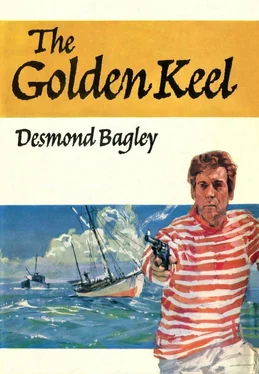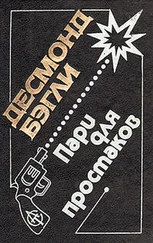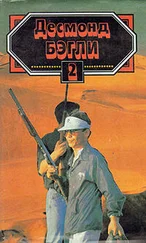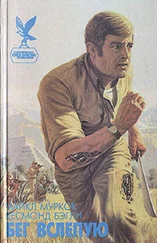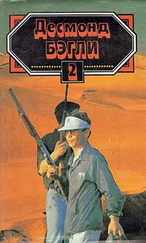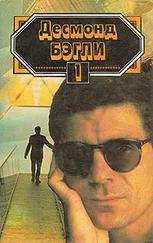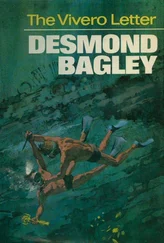He saw my interest and plunged into the story with gusto. When the Government fell in 1943 Italy was in a mess. The Italians were uneasy; they didn’t know what was going to happen next and they were suspicious of the intentions of the Germans. It was a perfect opportunity to break camp, especially when a couple of the guards threw in with them.
Leaving the camp was easy enough, but trouble started soon after when the Germans laid on an operation to round up all the Allied prisoners who were loose in Central Italy.
‘That’s when I copped it,’ said Walker. ‘We were crossing a river at the time.’
The sudden attack had taken them by surprise. Everything had been silent except for the chuckling of the water and the muffled curses as someone slipped — then suddenly there was the sound of ripped calico as the Spandau opened up and the night was made hideous by the eerie whine of bullets as they ricocheted from exposed rocks in the river.
The two Italians turned and let go with their sub-machine-guns. Coertze, bellowing like a bull, scrabbled frantically at the pouch pocket of his battle-dress trousers and then his arm came up in an overarm throw. There was a sharp crack as the hand grenade exploded in the water near the bank. Again Coertze threw and this time the grenade burst on the bank.
Walker felt something slam his leg and he turned in a twisting fall and found himself gasping in the water. His free arm thrashed out and caught on a rock and he hung on desperately.
Coertze threw another grenade and the machine-gun stopped. The Italians had emptied their magazines and were busy reloading. Everything was quiet again.
‘I reckon they thought we were Germans, too,’ said Walker. ‘They wouldn’t expect to be fired on by escaping prisoners. It was lucky that the Italians had brought some guns along. Anyway, that bloody machine-gun stopped.’
They had stayed for a few minutes in midstream with the quick cold waters pulling at their legs, not daring to move in case there was a sudden burst from the shore. After five minutes Alberto said in a low voice, ‘Signor Walker, are you all right?’
Walker pulled himself upright and to his astonishment found himself still grasping his unfired rifle. His left leg felt numb and cold. ‘I’m all right,’ he said.
There was a long sigh from Coertze, then he said, ‘Well, come on. Let’s get to the other side — but quietly.’
They reached the other side of the river and, without resting, pressed on up the mountainside. After a short time Walker’s leg began to hurt and he lagged behind. Alberto was perturbed. ‘You must hurry; we have to cross this mountain before dawn.’
Walker stifled a groan as he put down his left foot. ‘I was hit,’ he said. ‘I think I was hit.’
Coertze came back down the mountain and said irritably, ‘ Magtig , get a move on, will you?’
Alberto said, ‘Is it bad, Signor Walker?’
‘What’s the matter?’ asked Coertze, not understanding the Italian.
‘I have a bullet in my leg,’ said Walker bitterly.
‘That’s all we need,’ said Coertze. In the darkness he bulked as a darker patch and Walker could see that he was shaking his head impatiently. ‘We’ve got to get to that partisan camp before daylight.’
Walker conferred with Alberto, then said in English, ‘Alberto says there’s a place along there to the right where we can hide. He says that someone should stay with me while he goes for help.’
Coertze grunted in his throat. ‘I’ll go with him,’ he said. ‘The other Eytie can stay with you. Let’s get to it.’
They moved along the mountainside and presently the ground dipped and suddenly there was a small ravine, a cleft in the mountain. There were stunted trees to give a little cover and underfoot was a dry watercourse.
Alberto stopped and said, ‘You will stay here until we come for you. Keep under the trees so that no one will see you, and make as little movement as possible.’
‘Thanks, Alberto,’ said Walker. There were a few brief words of farewell, then Alberto and Coertze disappeared into the night. Donato made Walker comfortable and they settled down to wait out the night.
It was a bad time for Walker. His leg was hurting and it was very cold. They stayed in the ravine all the next day and as night fell Walker became delirious and Donato had trouble in keeping him quiet.
When the rescuers finally came Walker had passed out. He woke up much later and found himself in a bed in a room with whitewashed walls. The sun was rising and a little girl was sitting by the bedside.
Walker stopped speaking suddenly and looked at his empty glass on the bar counter. ‘Have another drink,’ I said quickly.
He needed no encouraging so I ordered another couple of drinks. ‘So that’s how you got away,’ I said.
He nodded. ‘That’s how it was. God, it was cold those two nights on that bloody mountain. If it hadn’t been for Donato I’d have cashed in my chips.’
I said, ‘So you were safe — but where were you?’
‘In a partisan camp up in the hills. The partigiani were just getting organized then; they only really got going when the Germans began to consolidate their hold on Italy. The Jerries ran true to form — they’re arrogant bastards, you know — and the Italians didn’t like it. So everything was set for the partisans; they got the support of the people and they could begin to operate on a really large scale.
‘They weren’t all alike, of course; there was every shade of political opinion from pale blue to bright red. The Communists hated the Monarchists’ guts and vice versa and so on. The crowd I dropped in on were Monarchist. That’s where I met the Count.’
Count Ugo Montepescali di Todi was over fifty years old at that time, but young-looking and energetic. He was a swarthy man with an aquiline nose and a short greying beard which was split at the end and forked aggressively. He came of a line which was old during the Renaissance and he was an aristocrat to his fingertips.
Because of this he hated Fascism — hated the pretensions of the parvenu rulers of Italy with all their corrupt ways and their money-sticky fingers. To him Mussolini always remained a mediocre journalist who had succeeded in demagoguery and had practically imprisoned his King.
Walker met the Count the first day he arrived at the hill camp. He had just woken up and seen the solemn face of the little girl. She smiled at him and silently left the room, and a few minutes later a short stocky man with a bristling beard stepped through the doorway and said in English, ‘Ah, you are awake. You are quite safe now.’
Walker was conscious of saying something inane. ‘But where am I?’
‘Does that really matter?’ the Count asked quizzically. ‘You are still in Italy — but safe from the Tedesci. You must stay in bed until you recover your strength. You need some blood putting back — you lost a lot — so you must rest and eat and rest again.’
Walker was too weak to do more than accept this, so he lay back on the pillow. Five minutes later Coertze came in; with him was a young man with a thin face.
‘I’ve brought the quack,’ said Coertze. ‘Or at least that’s what he says he is — if I’ve got it straight. My guess is that he’s only a medical student.’
The doctor — or student — examined Walker and professed satisfaction at his condition. ‘You will walk within the week,’ he said, and packed his little kit and left the room.
Coertze rubbed the back of his head. ‘I’ll have to learn this slippery taal,’ he said. ‘It looks as though we’ll be here for a long time.’
‘No chance of getting through to the south?’ asked Walker.
‘No chance at all,’ said Coertze flatly. ‘The Count — that’s the little man with the bokbaardjie — says that the Germans down south are thicker on the ground than stalks in a mealie field. He reckons they’re going to make a defence line south of Rome.’
Читать дальше
Конец ознакомительного отрывка
Купить книгу
